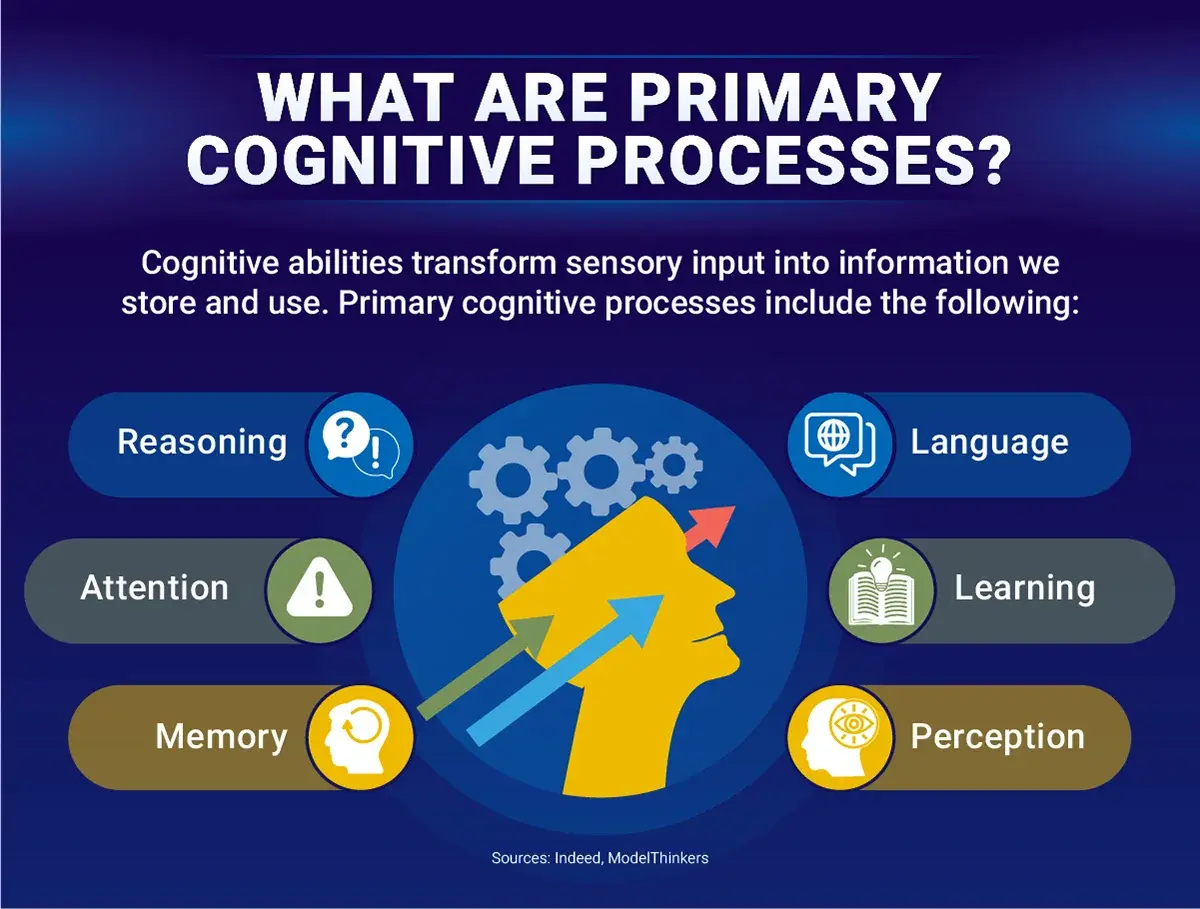AI's Limited Thinking: A Realistic Assessment Of Artificial Intelligence's Cognitive Abilities

Table of Contents
AI's Lack of Common Sense and Real-World Understanding
A major limitation of artificial intelligence is its lack of common sense reasoning. While AI excels at complex calculations and pattern recognition, it struggles with the intuitive understanding of the world that humans take for granted. This deficiency in real-world understanding leads to significant failures. Current AI systems often lack the contextual awareness necessary to interpret information accurately.
- Misinterpretations of images or text: AI might misinterpret an image due to a lack of contextual understanding. For example, an AI trained on images of cats might misidentify a small dog as a cat because it shares some visual similarities. Similarly, subtle nuances in language can easily be missed, leading to incorrect interpretations of text.
- Inability to handle unexpected situations or adapt to nuanced scenarios: AI struggles with situations that deviate from its training data. A self-driving car, for instance, might not know how to react to an unexpected obstacle, like a child running into the street, if this scenario wasn't explicitly included in its training.
- Difficulties in applying learned knowledge to new, unfamiliar contexts: AI's knowledge is often confined to the specific data it was trained on. Transferring this knowledge to new, even slightly different contexts, proves challenging. An AI trained to identify objects in a laboratory setting might fail to recognize those same objects in a natural environment.
Programming common sense into AI is a significant challenge, highlighting the complexities of replicating human-like cognition. It requires a level of intuitive understanding that current AI architectures haven't yet mastered.
The Limitations of AI in Creative and Abstract Thinking
While AI can generate impressive outputs, such as art and text, it’s crucial to differentiate between pattern recognition and true creativity. AI generates content based on statistical probabilities derived from its training data, effectively mimicking existing styles rather than innovating genuinely. It lacks the imaginative spark and conceptual understanding that fuels human creativity.
- AI's dependence on existing data limits its ability to produce truly novel ideas: AI can remix and recombine existing information, but it rarely creates something entirely new and unexpected.
- Difficulty in understanding metaphors, sarcasm, or humor: These aspects of human communication rely on implicit understanding and contextual awareness, which are areas where AI significantly lags.
- Inability to generate truly original artistic expressions or scientific breakthroughs: AI's contributions to art and science are impressive but remain reliant on human guidance and input. True breakthroughs often require a leap of imagination and insight beyond AI's current capabilities.
AI's strength lies in pattern recognition; its weakness lies in imaginative, abstract thought—a core component of human intelligence.
Emotional Intelligence and the Absence of Empathy in AI
Emotional intelligence plays a pivotal role in human interaction and decision-making. Empathy, understanding, and responding appropriately to emotions are crucial for navigating social complexities and building meaningful relationships. Current AI systems completely lack this capacity.
- Inability to interpret and respond appropriately to human emotions: AI can detect facial expressions and vocal inflections, but it cannot genuinely understand or empathize with the underlying emotions.
- Potential for miscommunication and misunderstandings due to lack of emotional awareness: This lack of emotional intelligence can lead to misinterpretations and inappropriate responses, particularly in situations requiring empathy and emotional nuance.
- Ethical concerns regarding AI's potential to exacerbate existing societal biases: AI systems trained on biased data can perpetuate and amplify harmful stereotypes, further underscoring the limitations of emotionless decision-making.
The absence of emotional intelligence in AI presents significant ethical and practical challenges, particularly in sensitive areas like healthcare and customer service.
The Overreliance on Data and the Problem of Bias
AI algorithms are trained on massive datasets, and biases present within this data inevitably lead to flawed outputs. This "garbage in, garbage out" problem is a significant limitation of AI's thinking.
- Examples of AI bias leading to discriminatory outcomes: Bias in facial recognition systems, leading to disproportionate misidentification of certain racial groups; biased loan applications resulting in unequal access to credit; and biased criminal justice algorithms leading to unfair sentencing.
- Methods for detecting and mitigating bias in AI datasets: Careful data curation, algorithmic adjustments, and the use of fairness metrics are crucial steps in addressing this problem.
- The ethical responsibilities of developers in creating unbiased AI systems: Developers have a moral obligation to create fair and equitable AI systems, actively working to mitigate bias and ensure responsible deployment.
Addressing data bias is critical for mitigating AI's limitations and ensuring that AI systems are used ethically and fairly.
Conclusion
This exploration of AI's limited thinking reveals several crucial limitations: a lack of common sense and real-world understanding, limited creativity and abstract thinking, an absence of emotional intelligence, and susceptibility to bias. While AI offers incredible potential, understanding AI's limited thinking is crucial for responsible innovation. The future of AI hinges on addressing these limitations. Continue learning about the challenges and ethical considerations to help shape the future of artificial intelligence, ensuring its beneficial integration into society. Only through a realistic understanding of both its power and its limitations can we harness the potential of AI responsibly.

Featured Posts
-
 Negative European Electricity Prices A Solar Energy Success Story
Apr 29, 2025
Negative European Electricity Prices A Solar Energy Success Story
Apr 29, 2025 -
 Adidas Anthony Edwards 2 A First Look At The New Signature Shoe
Apr 29, 2025
Adidas Anthony Edwards 2 A First Look At The New Signature Shoe
Apr 29, 2025 -
 International Condemnation Of Israeli Aid Ban As Gaza Suffers
Apr 29, 2025
International Condemnation Of Israeli Aid Ban As Gaza Suffers
Apr 29, 2025 -
 Blue Origin Rocket Launch Aborted Subsystem Issue Identified
Apr 29, 2025
Blue Origin Rocket Launch Aborted Subsystem Issue Identified
Apr 29, 2025 -
 Increased Rental Costs Following La Fires Spark Outrage A Selling Sunset Perspective
Apr 29, 2025
Increased Rental Costs Following La Fires Spark Outrage A Selling Sunset Perspective
Apr 29, 2025
Latest Posts
-
 The Challenges Of Producing All American Goods
Apr 29, 2025
The Challenges Of Producing All American Goods
Apr 29, 2025 -
 Why Making An All American Product Is So Difficult
Apr 29, 2025
Why Making An All American Product Is So Difficult
Apr 29, 2025 -
 Ohio Train Derailment Investigation Into Long Term Toxic Chemical Presence In Buildings
Apr 29, 2025
Ohio Train Derailment Investigation Into Long Term Toxic Chemical Presence In Buildings
Apr 29, 2025 -
 Detailed One Plus 13 R Review A Budget Friendly Alternative To Pixel 9a
Apr 29, 2025
Detailed One Plus 13 R Review A Budget Friendly Alternative To Pixel 9a
Apr 29, 2025 -
 Choosing Between One Plus 13 R And Pixel 9a Performance Camera And Value
Apr 29, 2025
Choosing Between One Plus 13 R And Pixel 9a Performance Camera And Value
Apr 29, 2025
